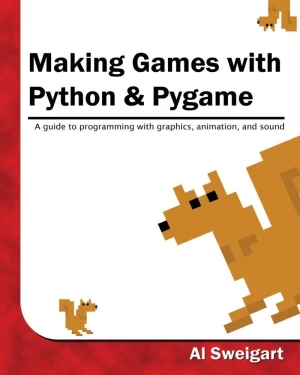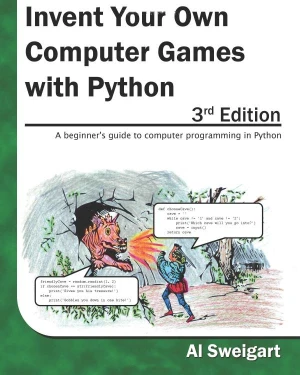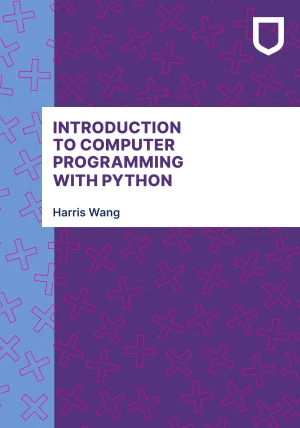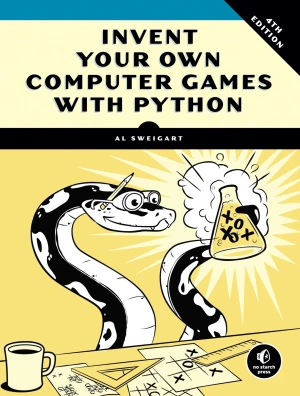Hacking Secret Ciphers with Python
A beginner's guide to cryptography and computer programming with Python
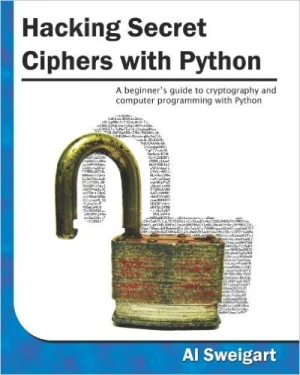
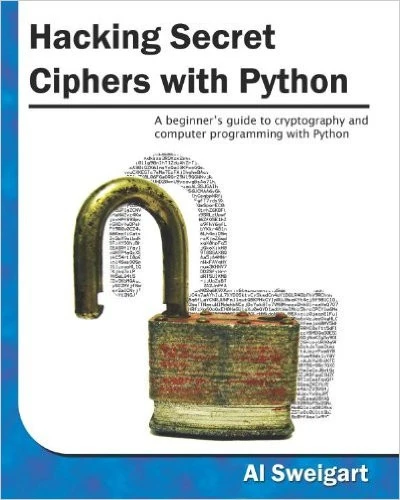
Book Details
| Author | Al Sweigart |
| Publisher | CreateSpace |
| Published | 2013 |
| Edition | 1st |
| Paperback | 442 pages |
| Language | English |
| ISBN-13 | 9781482614374 |
| ISBN-10 | 1482614375 |
| License | Creative Commons Attribution-NonCommercial-ShareAlike |
Book Description
There are many books that teach beginners how to write secret messages using ciphers. There are a couple books that teach beginners how to hack ciphers. As far as I can tell, there are no books to teach beginners how to write programs to hack ciphers. This book fills that gap.
This book is for complete beginners who do not know anything about encryption, hacking, or cryptography. The ciphers in this book (except for the RSA cipher in the last chapter) are all centuries old, and modern computers now have the computational power to hack their encrypted messages. No modern organization or individuals use these ciphers anymore. As such, there's no reasonable context in which you could get into legal trouble for the information in this book.
This book is available under a Creative Commons Attribution-NonCommercial-ShareAlike license (CC BY-NC-SA), which means that you are free to copy, distribute, and modify it, as long as you credit the original author, don't use it for commercial purposes, and share any adaptations under the same license.
If you enjoyed the book and would like to support the author, you can purchase a printed copy (hardcover or paperback) from official retailers.
Download and Read Links
Share this Book
[localhost]# find . -name "*Similar_Books*"
Blazor, A Beginners Guide
Blazor, A Beginners Guide is intended for developers with some .NET experience. If you're coming from a non-.NET development background, you may learn some .NET basics along the way, but supplemental material around C# and .NET would be of great help to you. The book begins with the author's own perspective on WebAssembly, why it's important to hav
Making Games with Python & Pygame
Making Games with Python & Pygame covers the Pygame library with the source code for 11 games. Making Games was written as a sequel for the same age range as Invent with Python. Once you have an understanding of the basics of Python programming, you can now expand your abilities using the Pygame library to make games with graphics, animation, and s
Game Hacking Academy
Hacking games requires a unique combination of reversing, memory management, networking, and security skills. Even as ethical hacking has exploded in popularity, game hacking still occupies a very small niche in the wider security community. While it may not have the same headline appeal as a Chrome 0day or a massive data leak, the unique feeling o
Invent Your Own Computer Games with Python, 3rd Edition
Invent Your Own Computer Games with Python teaches you how to program in the Python language. Each chapter gives you the complete source code for a new game, and then teaches the programming concepts from the examples. Games include Guess the Number, Hangman, Tic Tac Toe, and Reversi. This book also has an introduction to making games with 2D graph
Introduction to Computer Programming with Python
This introduction to computer programming with Python begins with some of the basics of computing and programming before diving into the fundamental elements and building blocks of computer programs in Python language. From the installation of Python, Python interactive programming, and integrated development environments, to raising and handling e
Invent Your Own Computer Games with Python, 4th Edition
Invent Your Own Computer Games with Python will teach you how to make computer games using the popular Python programming language - even if you've never programmed before! Begin by building classic games like Hangman, Guess the Number, and Tic-Tac-Toe, and then work your way up to more advanced games, like a text-based treasure hunting game and an


